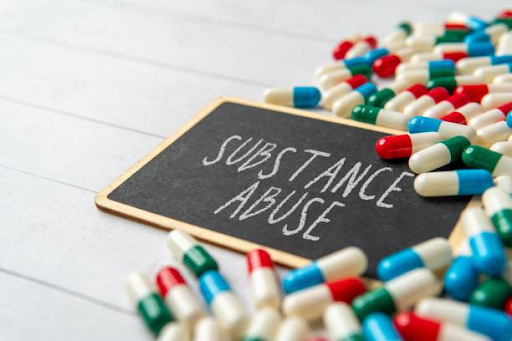Addiction Treatment Programs in Atlanta are built on the understanding that addiction is far more than a bad habit, it is a complex medical condition that affects individuals from all walks of life. Defined by compulsive substance use or harmful behaviors despite negative consequences, addiction develops through a combination of biological, psychological, and environmental influences. At Atlanta Treatment Center, we reinforce that addiction is not a lack of willpower but a chronic disease that requires compassionate care, proper education, and evidence-based treatment. When individuals and families understand how addiction truly works, they can take the first powerful step toward meaningful recovery and long-term wellness.
Exploring the Different Types of Addiction Treatment Programs
No two recovery journeys are alike. That’s why addiction treatment programs are designed to meet people where they are addressing their unique needs and goals. The most common treatment options include inpatient programs, outpatient programs, and support groups, each offering distinct advantages.
Inpatient Treatment Programs
Inpatient or residential treatment provides a structured, immersive environment where individuals stay at the facility for the duration of their program. This setting is ideal for severe addictions or those needing constant support. Patients benefit from 24/7 supervision, professional counseling, and a recovery-focused atmosphere. Research shows that inpatient care leads to higher long-term recovery success because of its comprehensive, distraction-free nature and the supportive community it fosters.
Inpatient Treatment Programs
Inpatient treatment offers a structured environment where patients reside at a treatment facility for the duration of their program. This care type is typically recommended for more severe cases of addiction, providing round-the-clock supervision and an immersive treatment experience. Studies indicate that individuals participating in inpatient programs have higher long-term success rates due to the intensive nature of the care provided and the supportive environment fostered by professional staff
Outpatient Treatment Programs
Outpatient treatment offers greater flexibility and allows individuals to continue their regular daily activities while receiving care. Patients attend therapy sessions and counseling at specified times during the week and return home after each session. This model is particularly beneficial for those with less severe addictions or for individuals transitioning from inpatient care. Evidence suggests that outpatient programs can be effective when combined with a strong support system and consistent adherence to treatment schedules
Support Groups
Support groups, such as Alcoholics Anonymous (AA) and Narcotics Anonymous (NA), provide a platform for individuals to share their experiences, offer mutual support, and encourage one another in their recovery journeys. Research indicates that participation in support groups can significantly enhance recovery outcomes by helping individuals maintain sobriety, reduce relapse rates, and foster a sense of belonging.
Innovative Approaches in Treatment
Today’s addiction recovery landscape is evolving. At Atlanta Treatment Center, we integrate modern innovations with proven therapeutic approaches to make treatment more effective, personalized, and accessible.
Technology in Recovery
Digital tools such as teletherapy, mobile recovery apps, and virtual support platforms are transforming addiction treatment. They help patients access professional care from anywhere, increasing convenience and reducing barriers to entry. Clinical evidence shows that technology-driven interventions enhance engagement and improve long-term outcomes by providing continuous motivation and monitoring
Holistic Therapies
Holistic approaches address not just the physical symptoms of addiction but also the mental, emotional, and spiritual aspects. Popular methods include yoga, acupuncture, mindfulness meditation, and nutrition therapy, which promote overall well-being and stress reduction. Research shows that holistic therapies can enhance traditional treatments by reducing anxiety and increasing emotional regulation, making them an effective complement to conventional rehab programs
Personalized Care Plans
The shift towards personalized care is redefining treatment paradigms in addiction recovery. By tailoring plans to fit individual needs, clinicians can provide more effective interventions. A study found that personalized care led to significantly better retention rates in treatment programs
The Role of Family and Community Support
Family involvement and community support are essential elements in the recovery journey from addiction and mental health issues. Engaging family members in the treatment process enhances outcomes, as they often provide emotional support, encouragement, and a sense of accountability. Studies indicate that individuals with strong familial support during recovery are more likely to maintain sobriety
Similarly, community support, encompassing local resources and peer networks, plays a critical role. Structured programs that involve community participation foster a sense of belonging among individuals in recovery Moreover, involvement from both family and community helps address the stigma surrounding mental health and addiction. By fostering open conversations and encouraging participation, these support systems can transform recovery into a collective mission, enhancing resilience among individuals facing these challenges (Source: Atlanta Treatment Center).
Navigating the Path to Recovery: What to Expect
The recovery process from addiction is a multifaceted journey comprising several distinct stages, each associated with unique challenges and necessary strategies for maintaining long-term sobriety.
Stages of Recovery
- Precontemplation: Individuals may not yet recognize the extent of their addiction and often require motivational strategies to encourage self-awareness.
- Contemplation: In this phase, individuals begin to consider the possibility of recovery, and educational resources can be impactful.
- Preparation: This phase involves planning for change, where individuals gather resources for their recovery journey.
- Action: Active participation in treatment occurs here, engaging in evidence-based practices such as therapy.
- Maintenance: The goal is to prevent relapse and sustain recovery, often involving support from peers and healthy routines.
- Relapse: Many individuals experience setbacks; understanding this can help in developing robust response plans (Source: Atlanta Treatment Center).
Challenges During Recovery
Challenges can include cravings and triggers, social stigma, and co-occurring mental health issues. Building a supportive network and implementing effective coping mechanisms are crucial (Source: Atlanta Treatment Center).
Tips for Long-term Sobriety
To maintain sobriety over the long term, consider establishing a support system, developing healthy habits, avoiding high-risk situations, continuously educating yourself, and seeking professional help.










